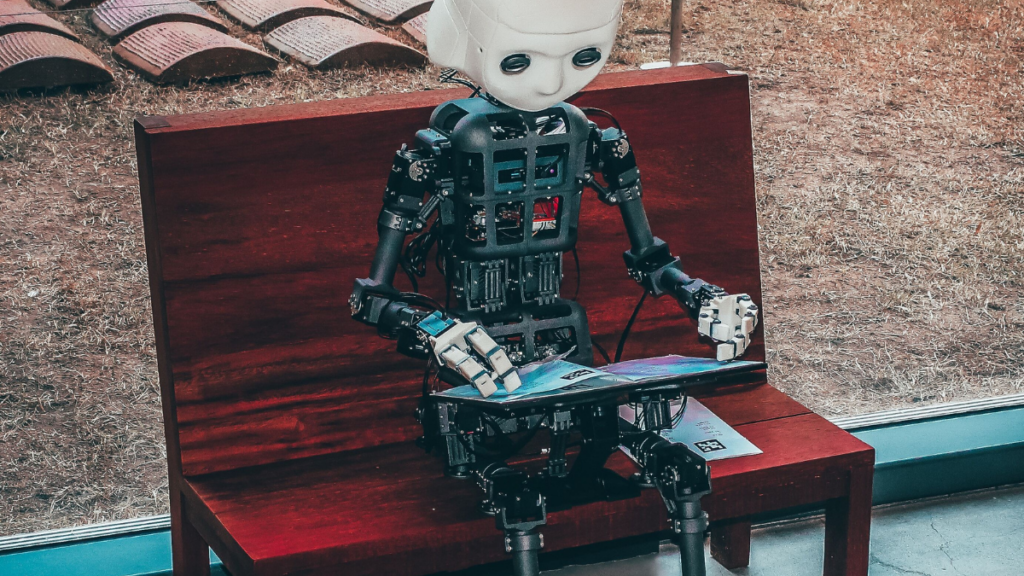By Ashleigh Clack, Copywriter of Bordeaux & Burgundy
A common question asked over the past few months is whether the existence of ChatGPT poses a threat to copywriting as a profession. Feelings on the subject remain mixed, but what is the potential impact of AI on copywriters? Will AI make copywriters obsolete?
Defining AI
ChatGPT defines itself as a language model created by OpenAI. It is designed to understand and process natural language and generate responses that are intended to be similar to those of a human being. It is trained in a vast amount of text data from the internet, which has allowed it to develop a broad range of knowledge and the ability to respond to a wide variety of questions and topics. Its primary purpose is to assist people in finding information, answering questions, and engaging in conversations.
CopyAI is a company that offers an AI-powered writing assistant which uses a type of machine learning that analyses and generates text. It aims to make writing faster and more accessible to everyone, regardless of their writing ability or experience. It is commonly used to generate a wide range of written content, including blog posts, social media content, emails, product descriptions and more.
The Pros and Cons of ChatGPT
The most significant advantage of ChatGPT is its speed and efficiency. Unlike a human copywriter who needs time to conduct research and write copy, ChatGPT can generate a substantial amount of content in a short amount of time. It can also provide a broader range of perspectives on a given topic due to its ability to analyze vast amounts of data quickly.
Another pro of ChatGPT is its ability to adapt to the user’s needs. For instance, it can optimize its language style and tone to suit a brand’s voice and audience. It can also generate content in multiple languages, allowing companies to reach a more diverse customer base.
Its downfall is that it lacks creativity and emotional intelligence. Although it can generate high-quality content, it can’t produce innovative ideas or tap into human emotions. These are crucial factors in creating compelling copy that resonates with customers. ChatGPT’s writing is too formulaic and can lack personality.
Keep in mind that all information generated by this AI is sourced from the internet, so check all content for accuracy.
How can copywriters use ChatGPT to their advantage?
The best way to think of ChatGPT in everyday copywriting is as an assistant. Here are a few ways to implement ChatGPT into a day-to-day work schedule:
- Generate ideas and rough drafts quickly. Copywriters will still need to review and edit the content as well as add their own unique voice and flair.
- Speed up routine tasks like social media posts and email marketing. This frees up time to focus on complex tasks that require more creative input.
- Summarize texts, emails, paragraphs or sentences.
- Rewrite text to make it better, punchier or change the tone.
- Add facts or stats to content pieces by asking ChatGPT to source these for you.
- Translate text into different languages for a global audience.
AI tools can be an excellent asset for businesses looking to generate high-quality content quickly and efficiently. Still, it is essential to remember that it cannot entirely replace the role of a human copywriter. Copywriters must continue to hone their craft and stay up-to-date with the latest trends and best practices to remain relevant in today’s ever-changing digital landscape.
While ChatGPT and other CopyAI tools are powerful resources for businesses, they are unlikely to make copywriters obsolete. Copywriting requires not only the ability to produce high-quality content but also the ability to think creatively, understand human emotions, and connect with consumers on a deeper level. Copywriters will always be needed to provide that unique human touch that AI-generated content cannot replicate.









